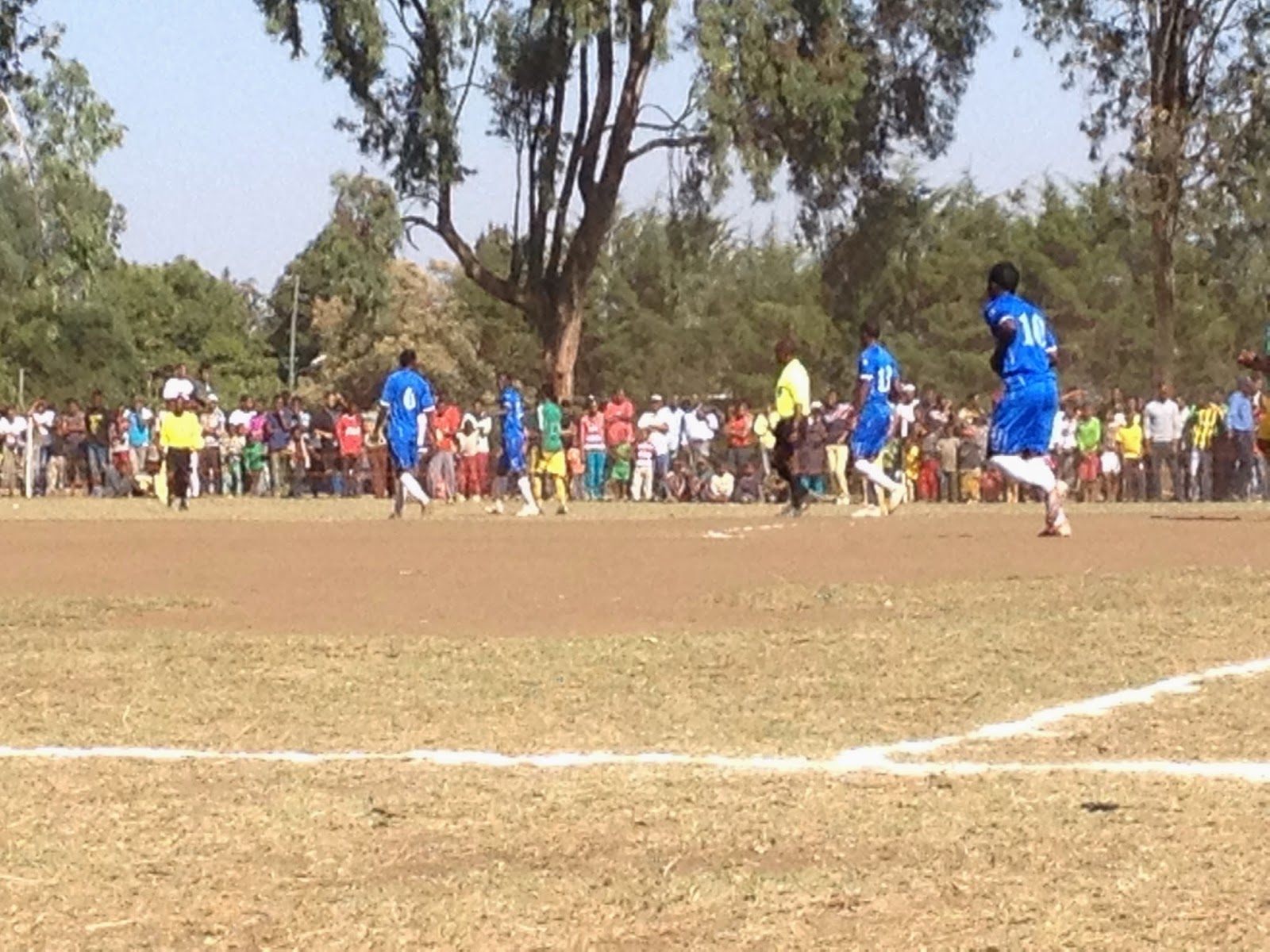The seasons of Ethiopia are changing often and can be very
unique to this country. Ethiopia
is located just above the equator; so when it gets hot, it can get very
hot. In a sense, the seasons in
Ethiopia are similar to those in America but are flipped. For example, during the “winter” months
when it is cold, rainy, and snowy in the states, it can be very hot, dry, and
dusty in Ethiopia.
Here is what the four seasons are called in Ethiopia:
Kiremt – the rainy season
Belg - the hot, dry season (there is some rain)
Bega – the very hot season
S’edey- there is some rain and it is very green
During January and February, we experience bega. I first arrived in Ethiopia beginning
of February, so the end of the very hot season was what I first
experienced. Also, the Ethiopian
holiday called T’imkat (Ethiopian Epiphany) is during January. March through May is belg. My pre-service training was during
these months. It was fairly hot
and dry majority of training.
Towards the end of training, we did have a few rainy days. In regards to holidays, Easter occurs
during this period of time in April.
As a side note, Easter is called Fasika in Ethiopia.
June through August (and also the 13th month of
the Ethiopian calendar) fall during the kiremt season. These few months were the first few
months that I was living at site.
Kiremt is the rainy season, so my first few months at site could be a
bit gloomy at times. It was
interesting to experience the cold and rainy season during this time of the
year because I am used to the hot weather that we have in the states during
these months.
During the months of September through December is the
S’edey season. I think what I have
struggled the most during this season is that it is the holiday season with
Thanksgiving, Christmas, and New Years (as well as other holidays) and I
generally associate this time of the year with cold weather, rain, and snow. There are quite a few holidays that
occur during this season. The
Ethiopian New Year occurs between the 13th month of the Ethiopian
calendar and September. There is
also Meskal (finding of the true cross) and Genna (Christmas). As a side note, some of these holidays
such as the Ethiopian Christmas fall on a different day than when we celebrate
Christmas. Although the Ethiopian
Christmas falls during December of the Ethiopian calendar, to falls during
January of the Georgian calendar.
Now, time for a language lesson! For those of you who are curious about what the months are
called in Amharic, here is a list below:
September - Meskerem
October – T’imk’imt
November - Hidar
December – Tahisas
January – T’ir
February - Yekatit
March - Megabit
April - Miyaziya
May - Ginbot
June - Sene
July - Hamle
August - Nehase
The 13th month – P’agume
With the 13 months of the Ethiopian calendar, it definitely
has proven to be a challenge at times to schedule events, activities, etc. with
people I work with at times. They
are on a different calendar than I am, so it has proved be very important to
make sure that both parties are clear on the day. I do not have an Ethiopian calendar of my own, so sometimes
I have to rely on others to give me the correct corresponding days. Mixing up days has not seemed to be a
problem as of yet. I have learned
though that if something such as the date is mixed up, it is extremely
important to be flexible and patient.
Both can be hard to do at times though (I am sure almost any volunteer
could agree with that).
Despite how different the seasons and calendar here are in
comparison to those in the states, it has been a great experience learning more
about the Ethiopian culture, similar holidays, different holidays, etc. It is something that I may grow
accustomed to over my two years of service. Despite how much I miss the seasons, holidays, and
traditions that I have left back in the states, it has been such a good
experience living in a country where such things are so different. It has been amazing learning about and
living in a new and different culture and it has allowed me to grow as a person
and learn more about myself as well.
As each season of Ethiopia changes over to the next, I change a little
as well (and I hope that at the end of my service, it has overall been a good change).
 |
| Rainy Season |
 |
| It can be very pretty as rainy season ends and the dry season begins. |































